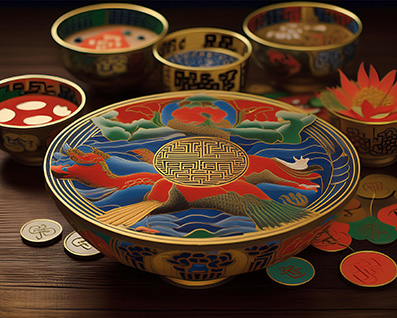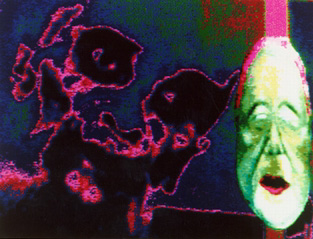
Study on China
In the early1990s, I enrolled in the graduate program of advanced liberal studies at Hamline University, Minnesota. This interdisciplinary program featured classes co-taught by professors from diverse fields, such as philosophy, psychology, sociology, and political science. With this multifaceted perspective, I explore issues related to Chinese politics and culture. Specifically, I explored topics such as China's mass media landscape and Chinese perspectives on ethics and human rights. These areas of study are reflected in my various research papers and reflection essays, some examples of which are outlined below. Despite being authored years ago, these papers retain significant relevance in the context of current China-US tensions. Historical events and cultural perspectives do not exist in isolation; rather, they form a continuum that shapes present-day dynamics. By examining these studies, we may gain valuable insights into the historical and cultural contexts that underpin contemporary issues.
Chinese Culture in Americans' Eyes
Some Chinese scholars have optimistically claimed that Western materialistic culture is in decline, asserting that Westerners now admire the spiritual and moral aspects of Chinese culture. However, this view is not universally shared. Many prominent American scholars, including Peter Drucker, Lucian Pye, and Michael Oksenberg, have not held Chinese cultural values in such high regard. Yet, attributing China's historical challenges solely to its culture presents a paradox: How then do we explain the significant achievements of Chinese communities in America, Taiwan, Singapore, Hong Kong, and other countries? This contradiction suggests that the relationship between culture and societal progress is more complex than simple cause-and-effect.
Full Text
Chinese Media Representation of America after the June 4 Crackdown
Following the June 4, 1989 crackdown in Beijing, the United States imposed sanctions against China. This paper examines how media outlets in Mainland China, Taiwan, and Hong Kong perceived and reported on the American response. The study's objective extends beyond merely describing these perspectives; it aims to infer the nature and underlying premises of media in these three regions based on their coverage of this event. The research findings reveal distinct approaches: Mainland Chinese media's coverage reflected a flexible foreign policy aimed at minimizing international tensions. In contrast, Taiwanese media's reporting was heavily influenced by their perception of America as a protector. Hong Kong's perspective, as represented by the magazine 'Ninety', highlighted a unique position, reflecting the lack of clear identities and ideologies among Hong Kong residents at the time.
Full Text
Chinese Ethics and Universal Human Rights
The Chinese government has historically opposed the concept of universal human rights, basing its stance on an evolutionist model and the theory of absolute sovereignty. From this perspective, allegations of human rights violations are often viewed as pretexts for Western interference in Chinese internal affairs. Many Western scholars, in turn, argue that the concept of human rights is entirely absent from Chinese tradition. This paper challenges that notion by examining classic Chinese philosophical writings. The analysis reveals that the traditional Chinese ethical system contains elements both compatible and incompatible with contemporary human rights concepts. Compatible notions include the universality of morality and the relativity of sovereignty and law. Incompatible components encompass practices such as "naming as doing" (the idea that categorizing something makes it so), the application of double standards, and a strong emphasis on collectivism. This nuanced view suggests that the relationship between Chinese traditional thought and modern human rights concepts is more complex than often portrayed.
Full Text